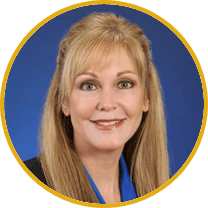A panel of eldercare experts, organized by the American Geriatrics Society, released its definition for person-centered care. The updated definition stresses the importance of individuals’ values, and a collaboration between the patient, their family and the provider.
A panel of eldercare experts has developed a definition for person-centered care that they believe addresses a lack of standardization and understanding of the term across the senior care continuum.
“Person-centered care means that individuals’ values and preferences are elicited and, once expressed, guide all aspects of their healthcare, supporting their realistic health and life goal,” the definition reads. “Person-centered care is achieved through a dynamic relationship among individuals, others who are important to them, and all relevant providers. This collaboration informs decision-making to the extent that the individual desires.”
The new definition meets the need for a “standardized, agreed-upon parameters” for person-centered care, the panel wrote in their findings. The panel included a research and clinical team from the University of Southern California and support from the SCAN Foundation.
“Person-centered care means that individuals’ values and preferences are elicited and, once expressed, guide all aspects of their healthcare, supporting their realistic health and life goal.”
“This concept shifts the success vision of healthcare on the things that matter most to people – how they are living every day with complex needs and achieving their personal goals,” said Bruce Chernof M.D., president and CEO of the SCAN Foundation. “Person-centered care defines quality and value beyond technical measures of care toward dignity, respect of personal choices, and life outcomes achieved.”

Lisa is a turnaround expert who excels in navigating unsteady, complex, and ambiguous environments. She has provided C-suite education to over 10,000 organizations in the home care sector for decades. Lisa’s trusted voice in the industry has been recognized for her ability to manage disruption, identify new growth and revenue opportunities, and develop high-level engagement strategies between home care and referral partnerships. Her contributions are instrumental in advancing the future of home care.


